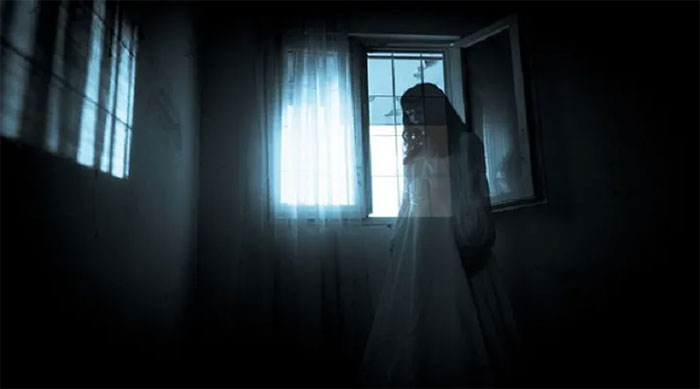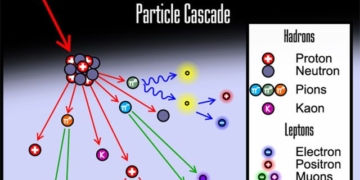Phasmophobia is an intense fear of ghosts. For those who suffer from this phobia, just mentioning supernatural entities—ghosts, witches, vampires—can be enough to evoke irrational fear. A horror movie or a mysterious television show can also send many people into a panic.
What You Need to Know About Phasmophobia
Read on to learn whether the fear evoked by a scary movie, an empty house, or Halloween decorations is a normal fear or a true obsession.
Fear of Ghosts
Many of us have been afraid of ghosts or otherworldly creatures since childhood. However, for most people, these fears and anxieties fade as they enter adolescence. But for others, the fear remains. It can even escalate into chronic obsession and potentially debilitating anxiety.

Unclear why phasmophobia develops
Causes
The exact reasons for the development of phasmophobia remain unclear. Some individuals with a genetic predisposition to anxiety are at a higher risk of developing this phobia. Trauma or distressing life events can set the stage for future fears. For others, it may develop independently.
Effects
Individuals with phasmophobia often report sensing the presence of “ghosts” when alone. Small noises become positive evidence that their fears are justified. They may even have a vivid impression that they are being watched or are in a confrontation with a supernatural entity.
The feeling of fear can be so severe that it immobilizes them, making it difficult to perform necessary functions. Waking up to go to the bathroom or even falling asleep can become exceedingly challenging or cause excessive anxiety.
Contributing Phobias
Other phobias, such as fear of being alone (autophobia), can actually develop into object phobia. Research indicates that individuals with intense fear of being alone, especially at night or while sleeping, may also fear these ghostly presences.
It remains unclear whether the fear of ghosts precedes or develops as a result of existing fears of darkness and nighttime.
Symptoms of Phasmophobia
Those who fear ghosts experience symptoms such as:
- Feeling psychologically attacked
- Difficulty sleeping alone
- Severe anxiety
- Intense fear or a sense of impending doom
- Avoiding nighttime bathroom trips
- Avoiding being alone
- Daytime sleepiness (due to lack of sleep)
- Reduced productivity (due to lack of sleep)
Feeling psychologically attacked (panic attacks) is the most common symptom of this phobia. It can be extremely debilitating, often disrupting and halting a person’s daily life. However, not everyone who suffers from phasmophobia experiences panic attacks. There are many other symptoms sufficient for diagnosing the fear of ghosts.

Many phobias can actually develop into object phobia.
Individuals with this phobia may turn to religious rituals to avoid or “ward off” the ghosts they might encounter.
If these rituals become compulsive—meaning a person cannot engage in normal activities without performing these measures first—they may be developing obsessive-compulsive disorder (OCD).
How to Overcome the Fear of Ghosts?
As mentioned earlier, most of us outgrow our fear of ghosts as we transition into adolescence. For children, parents should discuss the irrational nature of these fears while also limiting their exposure to being alone, horror movies, and helping them gradually adjust to darkness…
However, if the fear of ghosts continues into adulthood, it is essential to seek various treatment options.
Treatment for phasmophobia can be divided into two categories: therapy and medication. In some special cases, a combination of both may be necessary to enhance treatment effectiveness.
Medications to Alleviate Anxiety
Antidepressants or anti-anxiety medications can provide stabilization for your mental state. They are also used to treat phasmophobia. These medications can limit the body’s fear responses, such as rapid heartbeat or nausea.
While these medications can be effective, they are typically prescribed for conditions like depression. Therefore, there is no specific medication for the fear of ghosts as one might think. They are simply types of stabilizing, calming medications.
Psychological Therapy
This is a common treatment approach for phobias. A mental health professional investigates the reasons behind the fear to find ways to cope with it.
Sometimes you may hesitate to openly admit your fear of ghosts due to embarrassment. This is not a good thing. Always keep an open heart to talk to loved ones or doctors so you can receive support. Early detection and treatment will be better for your health.
Fear of ghosts is not something to be ashamed of. But if you do not acknowledge this fear, it can hinder our beautiful lives. Prolonging the fear can exacerbate the condition. You should try to learn how to manage your fear to control your mind and improve your psychological issues.

















































